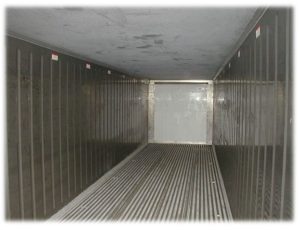ICBC Fleet plan
The fleet plan coverage package offered by the Insurance Corporation of British Columbia is for trucking firms that have five or more registered motor vehicles that are used for commercial purposes. The fleet plan is an optional choice for firms with 5-19 trucks but is required for fleets with 20+ vehicles. Trailers can be included in the fleet as they are classified as towed vehicles but there is a minimum requirement for the number of power units in the fleet. For example, a fleet must contain at minimum 5 motor vehicles before a trailer unit can be counted towards the fleet. Fleetplan members enjoy higher potential premium discounts that reach up to 63 percent. The primary benefit of enrolling in the ICBC fleet plan is the access a firm gets to convenient payment options including credit card and payment plan financing. The option to create mid-term changes to the fleet and coverage is also an added benefit. There is no requirement for paying insurance premiums up front in full for fleet plan members.
For trucking firms that have less than 5 motor vehicles, they must utilize the principal operator plan. The principal operator plan requires each motor vehicle have a declared PO and if there is none then there is an option to select ‘no principal operator’.
How are fleet premiums calculated?
Premium discounts and surcharges depend on the fleet’s loss ratio over a three-year period. The loss ratio accounts for the cost of at-fault claims and is the percentage of the total premium. For example, if 20 percent of what you pay in your total premiums is needed to pay for claims, then the loss ratio is 20 percent. There is a limit to the amount of money that can be used in calculating the loss ratio. It is $7,500 for collision and $7,500 for third-party liability claims.
The three-year period used to determine the loss experience of a fleet is called the scan period and is comprised of the fourth, third, and second, but not the most recent year. The total gross premiums are taken for the scan period which is the amount paid to ICBC not counting discounts or surcharges. Comprehensive coverage claims are not considered.
With the principal operator truck plan, the discount levels vary based on the insurance claims history of the primary driver of the truck. However, with the fleet plan the same fleet discount is spread out across all fleet vehicles. On top of that, there are rate classes for the types of motor vehicles that can be used to qualify for a fleet plan.
ICBC Rate Class
These are the classes that do not count toward the creation of a fleet:
- 001, 005, 021, 022, 023, 024, 027, 051, 055, 320, 321, 322, 323, 324, 701, 705, 710, 711, 712, 713, 714, 720, 721, 722, 723, 724, 510, 511, 512, 512, 514, 550, 551, 552
Here is some information relating to the rate classes in terms of which class matches which type of vehicle and application:
- 001, 051, 005, 055, 021 are any vehicle that is used for pleasure use only
- 022, 023, 024 are any vehicle that is driven to and from work or school and pleasure use. If members of the principal operator’s household or other individuals drive the vehicle it may not qualify for the fleet creation.
- 027 is any vehicle that is driven for business use and pleasure use and by anyone other than the principal operator for unrelated purposes.
Many of the rate classes above that do not count toward either the creation of a fleet or cannot participate in the fleet plan are of the motorcycle, motor home, or trailer variety. Remember, fleet plan vehicles must be used for commercial purposes.
ICBC Truck Insurance
All trucking firms operating in the Province of BC are by law required to have a minimum of $1 million in commercial third-party liability coverage ($2 million for TDG vehicles), and have ICBC basic insurance coverage or have obtained a Financial Responsibility filing certificate. If a trucking firm is based in another jurisdiction, their insurer will file the FR certificate on the behalf of the firm. The financial responsibility certificate may be required for owner operators of out-of-province commercial vehicles that are leased onto a motor carrier.
Vehicles leased to a motor carrier by an owner operator can be included in the fleet for the ICBC fleet plan.
Fleets that have high insurance premium surcharges can take advantage of ICBC’s retrospective rating program. The program is for eligible fleets with more than 200 vehicles or with annual premiums of $100,000 or more (Roughly 9-10 semi-trucks). It gives qualifying fleets the opportunity to reduce their insurance premiums through demonstration of commitment to safety, good hiring practices, and proper vehicle maintenance. It has been noted these agreements are specific to the firm.
It is important to make the distinction between provincial commercial vehicle insurance requirements and International Registration Plan prorate licensing. While ICBC is the responsible for facilitating IRP licensing and permitting, there is a separate designated office for prorate services.
Garage policy vehicles are eligible for the fleet plan but only if the purpose of parking/storing the truck is for commercial/business purposes.
Furthermore, fleet plan insurance policies expire at the same time which can make the renewal administration process easier.
For more information about ICBC truck insurance, contact your Autoplan broker.




Thanks for the wonderful article
Hello my name is Joyce
My son would like to move to Vancouver. He has a 2016 chev pick up.
Good driving record and 53yrs. Old
Could you please give me an approx. quote